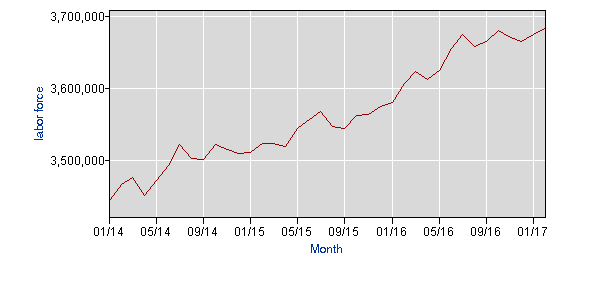Well I'm bored, so I guess I'm writing about the minimum wage. So let me just throw it out there, I am in favor of a $15 per hour minimum wage. And I know there are a lot of concerns about the minimum wage so let me try to justify this shit or whatever.
So, one of the biggest things I hear about the minimum wage is that it's going to cause massive price inflation which ends up negating the whole wage bump. And the thinking goes, well labor costs increase, so corporations will compensate by raising prices to get back to the same profit levels as before. And while this sounds like a compelling argument at face-value, you have to remember that increasing prices leads to fewer customers, which leads to lesser profit if the price is high enough. I guess, the reason for this rationale is that a lot of people believe that businesses are paying their employees the maximum that they can, this is simply WRONG! This ignores reality entirely and the operation of the market and labor market in particular.
Consider this, pretend I had a business, where I could hold a maximal number of employees at like 100. And from each labor-hour they put in I generate $1000 in revenue. This job by the way requires little skill, just human skills and shit(basically low-skill service jobs). Now everyone else is paying their employees with the exact same qualifications I need $7.25 an hour. Why the fuck would I pay them anything more, especially if it's low-skill and a lot of people are looking for jobs(which they always are. A similar thing happens with other minimum wage jobs too, just because they're simple doesn't mean they don't generate a lot of value for the employer, for example McDonald's in 2013 made
about 2.5 million dollars per restaurant. And the amount of employees in a
fast food restaurant is about 15. So they make about $166,666.67 per employee asking for a raise from $7.25 to $15 or about $16,000 a year doesn't sound that bad does it?
And while, that's a specific example, the Hospitality Department at Purdue
did a study on this and would raise fast-food prices by about 4.3%. So that literally four cents about on every dollar and in return the most struggling among us getting a nicer live. Isn't that a nice deal, but NOO! conservatives would rather blow that money on making America "stronger" cause you know
we don't spend enough already.
Or maybe, Purdue isn't convincing enough and you would like a specific example, well how about
Seattle where they have been incrementing it up to the $15 an hour an they don't have massive price inflation or unemployment. All they have is slightly richer, poor workers who spend the money back into the local economy generating jobs, vs the richest Americans taking that too and sending it off-seas.
Don't believe him, well I crunched the numbers between Seattle and the total of Washington, in regards to unemployment.
The source for the following numbers is the
Bureau of Labor Statistics is this page on the BLS site.
The Series ID's:
Seattle Employment : LAUCT536300000000005
Seattle Labor Force : LAUCT536300000000006
Washington Employment : LAUST530000000000005
Washington Labor Force : LAUST530000000000006
All the graphs attached below are from Jan 2014 to Jan 2017.
t1= Jan 2014
t2= Jan 2017
Seattle Employment
Seattle Labor Force
Washington Employment
Washington Labor Force
So how much worse is the employment rate of Seattle vs Washington, considering Washington isn't doing the raise to $15 while Seattle is.
Seattle:
The amount of employed people in Seattle in
t1: 386,382
t2: 421,374
The labor force, or total in
t1: 404,193
t2: 436,137
Based on these numbers we can calculate how many people were employed out of the total, or what I will be referring to as the employment rate.
t1: 95.70%
t2: 96.62%
Change: +0.91%
Washington(as a whole):
The amount of employed people in the state in
t1: 3,203,473
t2: 3,465,814.
The labor force
t1: 3,445,693
t2: 3,676,071
The employment rate by period of time is,
t1: 92.97%
t2: 94.28%
Change: +1.31%
So overall, Washington did end up with slightly and by slightly I mean like 0.28% or in decimal form 0.0028. So it barely moved, I decided to read a bit more into the numbers, and calculated the difference between Seattle and Washington per time period
t1: +2.62%
t2: + 2.34%
Change In Range: -0.28%
So basically, Seattle didn't gain as many jobs as a percent than Washington as a whole, however the difference is so small it barely means any thing and in my opinion the costs of this are minimal compared to the upside of the poorest of workers having more money.




